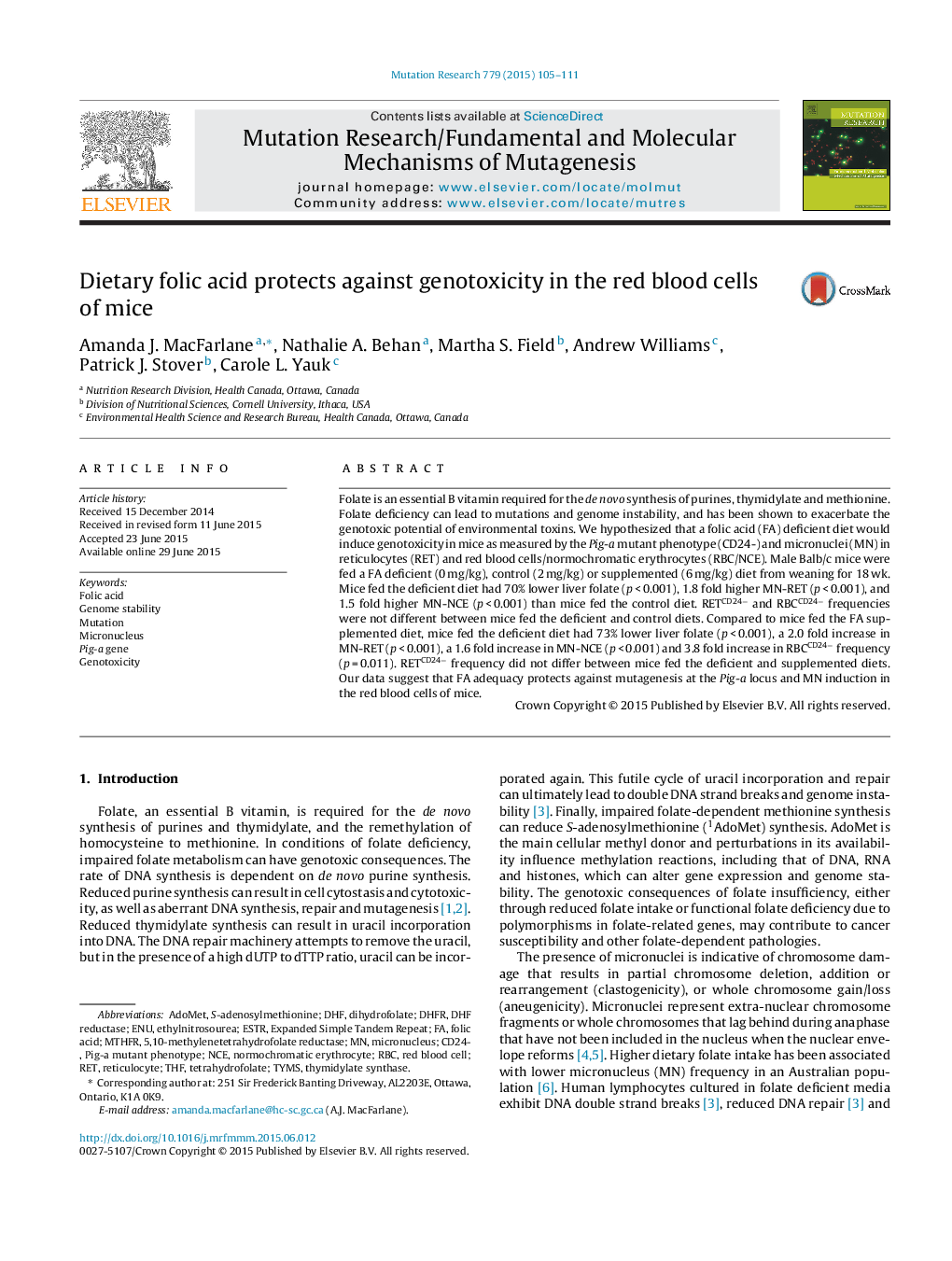| Article ID | Journal | Published Year | Pages | File Type |
|---|---|---|---|---|
| 8455698 | Mutation Research/Fundamental and Molecular Mechanisms of Mutagenesis | 2015 | 7 Pages |
Abstract
Folate is an essential B vitamin required for the de novo synthesis of purines, thymidylate and methionine. Folate deficiency can lead to mutations and genome instability, and has been shown to exacerbate the genotoxic potential of environmental toxins. We hypothesized that a folic acid (FA) deficient diet would induce genotoxicity in mice as measured by the Pig-a mutant phenotype (CD24-) and micronuclei (MN) in reticulocytes (RET) and red blood cells/normochromatic erythrocytes (RBC/NCE). Male Balb/c mice were fed a FA deficient (0 mg/kg), control (2 mg/kg) or supplemented (6 mg/kg) diet from weaning for 18 wk. Mice fed the deficient diet had 70% lower liver folate (p < 0.001), 1.8 fold higher MN-RET (p < 0.001), and 1.5 fold higher MN-NCE (p < 0.001) than mice fed the control diet. RETCD24â and RBCCD24â frequencies were not different between mice fed the deficient and control diets. Compared to mice fed the FA supplemented diet, mice fed the deficient diet had 73% lower liver folate (p < 0.001), a 2.0 fold increase in MN-RET (p < 0.001), a 1.6 fold increase in MN-NCE (p < 0.001) and 3.8 fold increase in RBCCD24â frequency (p = 0.011). RETCD24â frequency did not differ between mice fed the deficient and supplemented diets. Our data suggest that FA adequacy protects against mutagenesis at the Pig-a locus and MN induction in the red blood cells of mice.
Keywords
EstrethylnitrosoureaTHFreticulocyteAdoMetENURBCNCEdihydrofolateTYMSMTHFRDHF5,10-methylenetetrahydrofolate reductasedhfrnormochromatic erythrocyteS-adenosylmethionineFolic acidtetrahydrofolateGenome stabilitymutationRETPig-a genethymidylate synthaseGenotoxicityMicronucleusExpanded simple tandem repeatred blood cell
Related Topics
Life Sciences
Biochemistry, Genetics and Molecular Biology
Cancer Research
Authors
Amanda J. MacFarlane, Nathalie A. Behan, Martha S. Field, Andrew Williams, Patrick J. Stover, Carole L. Yauk,
